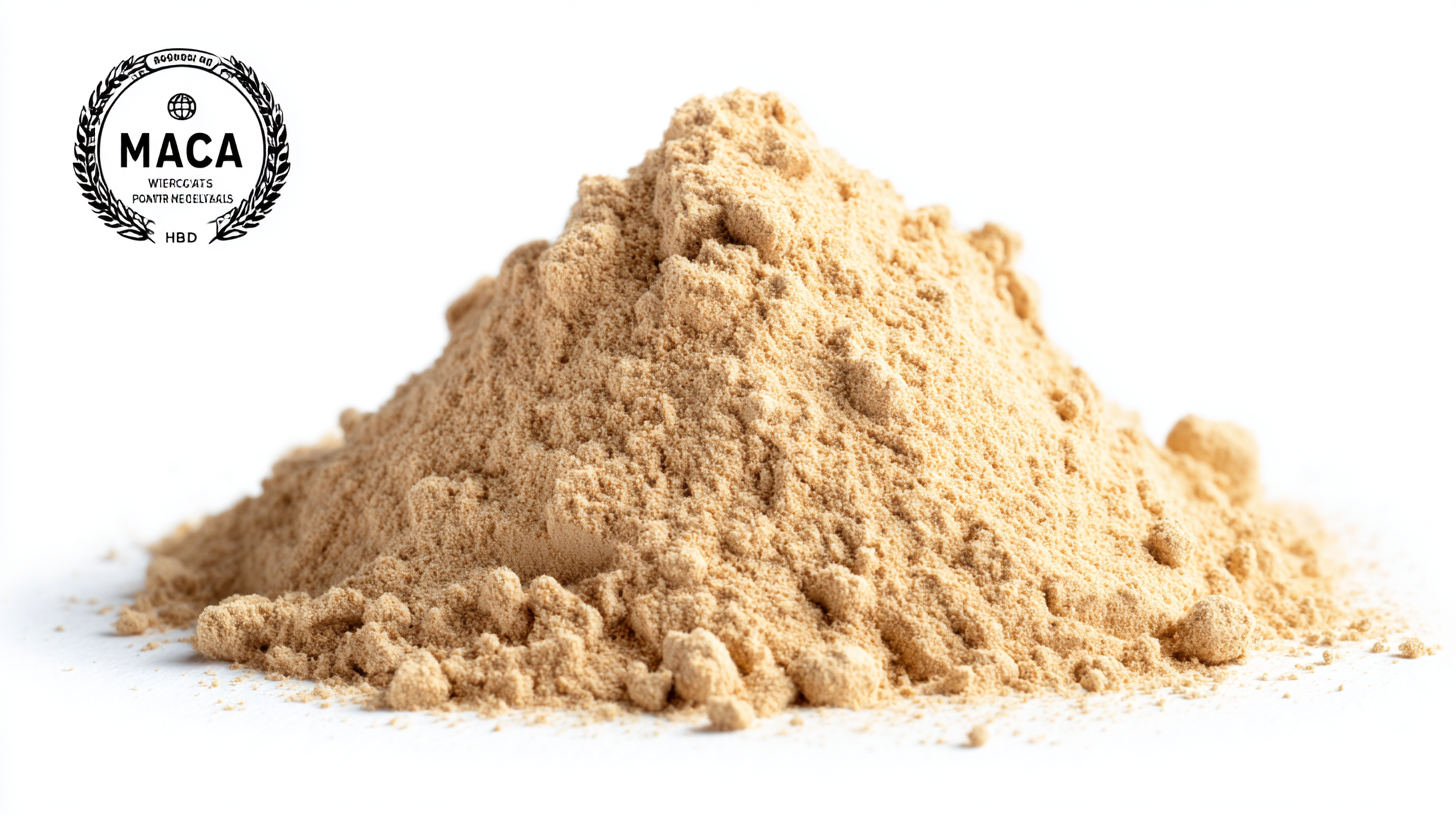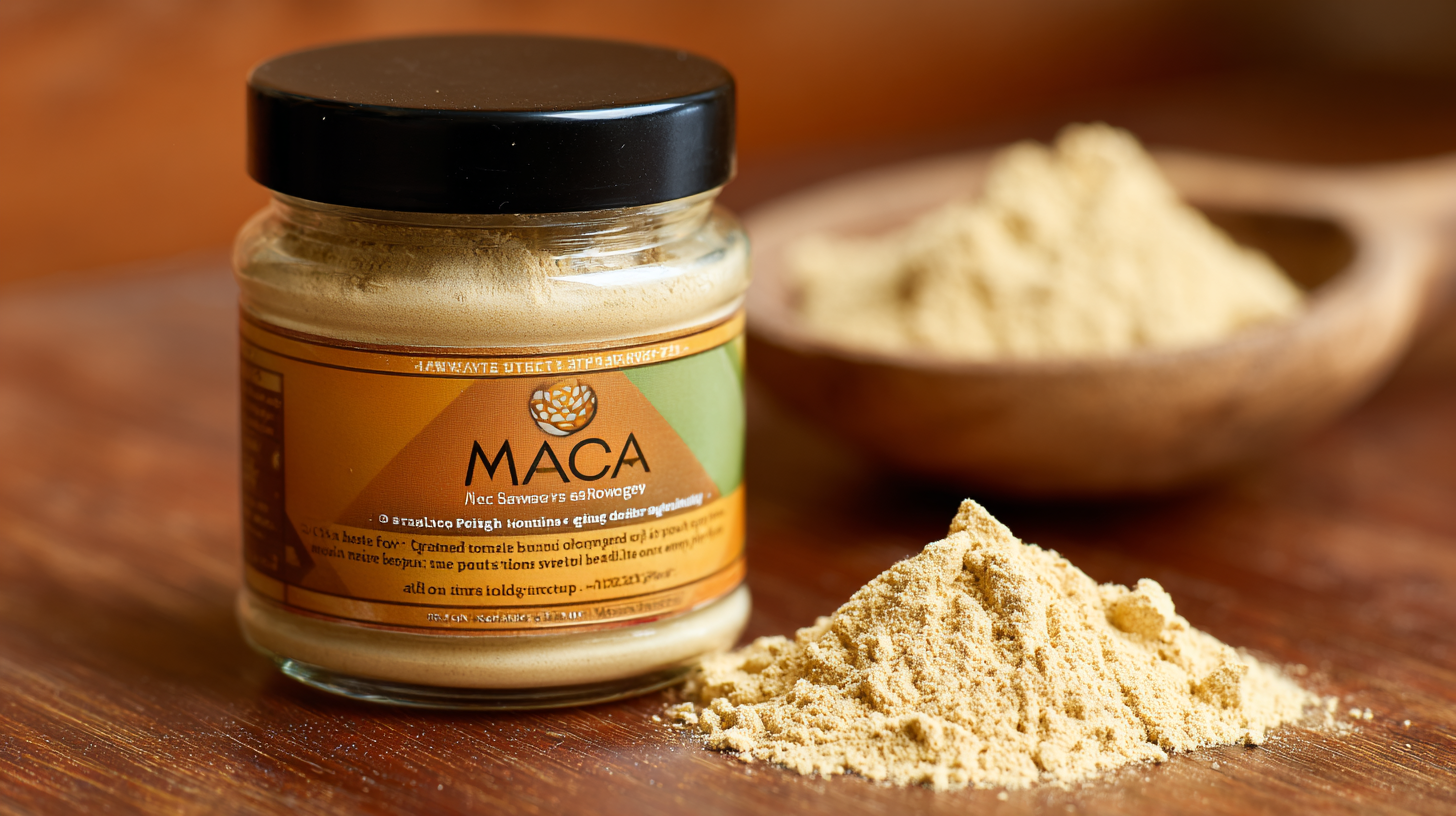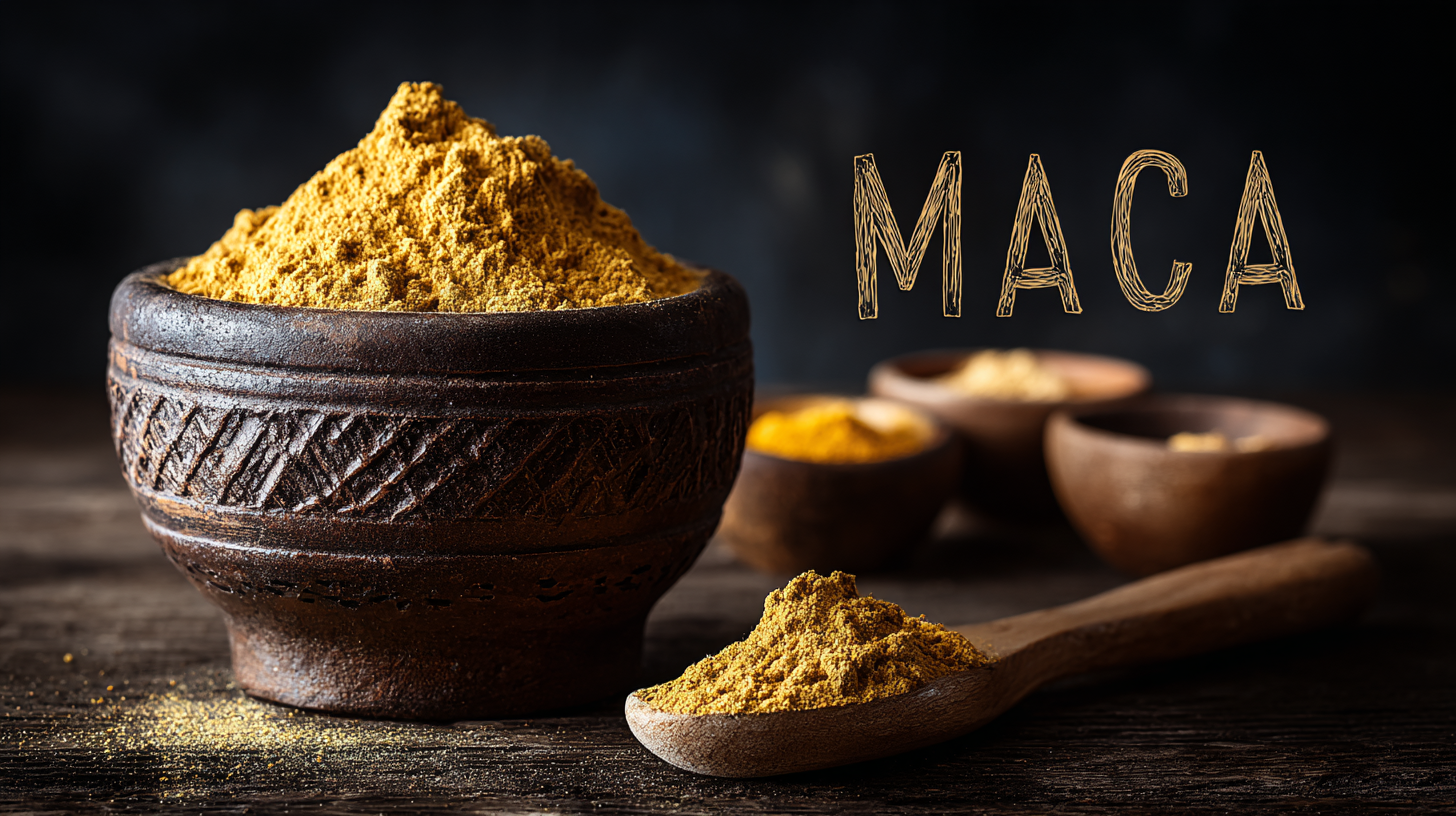
-
Home
-
Products
-
About US
-
FAQ
-
News
-
Tips
-
Contact Us
Leave Your Message
- Phone
- E-mail
- WhatsApp
- WA Business



 Maca powder has emerged as a powerful superfood, garnering attention worldwide for its numerous health benefits and potential applications in global trade. As consumers increasingly seek natural and holistic solutions for their wellness, understanding the Maca powder benefits is essential for businesses looking to enter or expand within this lucrative market.
However, navigating the complexities of international trade requires more than just awareness of the product’s advantages; it necessitates compliance with various safety and quality certifications.
This blog will explore the secret benefits of Maca powder, highlighting how obtaining five essential certifications can unlock its market potential, ensuring both product integrity and consumer trust.
Join us as we delve into the reasons why Maca powder is not just a nutritional powerhouse, but also a smart investment for businesses aiming to thrive in the dynamic landscape of global trade.
Maca powder has emerged as a powerful superfood, garnering attention worldwide for its numerous health benefits and potential applications in global trade. As consumers increasingly seek natural and holistic solutions for their wellness, understanding the Maca powder benefits is essential for businesses looking to enter or expand within this lucrative market.
However, navigating the complexities of international trade requires more than just awareness of the product’s advantages; it necessitates compliance with various safety and quality certifications.
This blog will explore the secret benefits of Maca powder, highlighting how obtaining five essential certifications can unlock its market potential, ensuring both product integrity and consumer trust.
Join us as we delve into the reasons why Maca powder is not just a nutritional powerhouse, but also a smart investment for businesses aiming to thrive in the dynamic landscape of global trade.
The rise of maca powder in global markets is a significant trend that highlights the increasing demand for natural health products. According to a recent report by ResearchAndMarkets, the global maca root powder market is projected to grow at a CAGR of 8.8% from 2023 to 2030, driven predominantly by health-conscious consumers and the surge in plant-based diets. Chinese manufacturers are keen to capitalize on this trend, leveraging their expertise in agriculture and manufacturing to produce high-quality maca powder for export.
As demand grows, certifications such as organic, non-GMO, and Fair Trade become critical for Chinese maca powder producers. These certifications not only enhance product credibility but also open doors to lucrative international markets. For instance, a study by the International Trade Centre highlights that products with organic certification can see price premiums of up to 30% in North American and European markets. This positioning is essential for manufacturers looking to differentiate their products in a competitive landscape.
**Tip:** When sourcing maca powder, check for essential certifications to ensure quality and authenticity. Additionally, opting for suppliers who engage in sustainable farming practices can further enhance your brand's appeal to environmentally conscious consumers.
**Tip:** Investigate potential distributors who have an established presence in international markets, as their insights can aid in navigating the complexities of global trade and compliance.
Maca powder, derived from the nutrient-rich root of the maca plant, has been gaining traction on the global market, driven by its numerous health benefits and rising popularity among health-conscious consumers. However, to successfully penetrate international markets, obtaining essential certifications is imperative. Certifications such as USDA Organic, Non-GMO Project Verified, and Fair Trade not only enhance product credibility but also meet regulatory requirements that instill trust among consumers. According to a report by Mordor Intelligence, the global superfood market, including maca powder, is projected to reach USD 209.24 billion by 2027, highlighting the urgency for producers to leverage these certifications to capitalize on this growth.
Furthermore, certifications can significantly influence pricing strategies and market access. A study by the International Trade Centre revealed that products with credible certifications could see a price premium of 10-30%. This not only boosts profitability but also enables brands to establish a loyal customer base looking for quality and ethical production practices. As global consumers increasingly prioritize transparency in sourcing and production, certifications act as a pathway to ensure that maca powder producers can compete effectively on the international stage, ultimately unlocking the full potential of this lucrative market.
Navigating the quality standards for maca powder is crucial for producers aiming to enhance their market presence in the global trade landscape. Certifications play a pivotal role in assuring consumers of the product's safety, quality, and adherence to industry regulations. According to a report by Grand View Research, the global maca powder market is projected to reach USD 60 million by 2025, highlighting the increasing demand for certified products that meet stringent quality standards. These certifications not only provide a competitive edge but also serve as a testament to the product's organic, non-GMO, and sustainable sourcing processes.
Incorporating essential certifications, such as USDA Organic, Non-GMO Project Verified, and Fair Trade, significantly elevates the perceived value of maca powder products. A study conducted by Ecovia Intelligence emphasizes that over 60% of consumers consider certifications as a key factor when choosing food products. This rising interest in certified goods is particularly evident in North America and Europe, where health-conscious consumers are willing to pay premium prices for products that ensure ethical practices and environmental responsibility. For maca powder producers, obtaining these certifications is not just a regulatory requirement, but a strategic move to align with consumer preferences and bolster their brand reputation in the global marketplace.
The rising popularity of maca powder, particularly in regions like China, is reshaping the dynamics of global trade in the beauty and wellness sectors. As the world becomes more health-conscious, products hailed for their nutritional and therapeutic benefits, such as maca, are gaining traction. Maca powder is not just a superfood; it represents a growing trend within the beauty industry where clean, natural ingredients are increasingly valued. This shift is evidenced by the projected growth of the global skincare market, expected to surge from $122.11 billion in 2025 to an impressive $194.05 billion.

Incorporating maca powder into beauty products aligns with consumer demand for sustainable and effective solutions. The certifications that accompany maca—ensuring organic sourcing, fair trade, and quality—are integral in captivating the modern consumer. These certifications not only enhance the product’s marketability but also foster trust in brands that prioritize ethical sourcing and sustainability. As the beauty industry continues to evolve, maca powder stands as a testament to how authentic ingredients can influence trade dynamics, with implications that stretch beyond health and wellbeing into economic sustainability across global markets.
Maca powder, derived from the Peruvian maca root, is gaining traction in health circles for its impressive nutritional profile and various health benefits. To successfully penetrate the global market, businesses must leverage these health advantages while ensuring compliance with essential certifications. These certifications not only validate the quality and safety of maca powder but also enhance consumer trust, opening doors to new markets.
Strategic marketing efforts should highlight unique attributes such as maca's adaptogenic properties, which can boost energy levels, improve mood, and enhance overall well-being. By creating targeted campaigns that resonate with health-conscious consumers, brands can showcase maca powder as a versatile superfood. Moreover, establishing partnerships with health influencers and participating in wellness expos can further elevate the product's visibility. As the demand for functional foods rises, embracing maca powder's health benefits will be crucial for businesses aiming for successful global trade.
